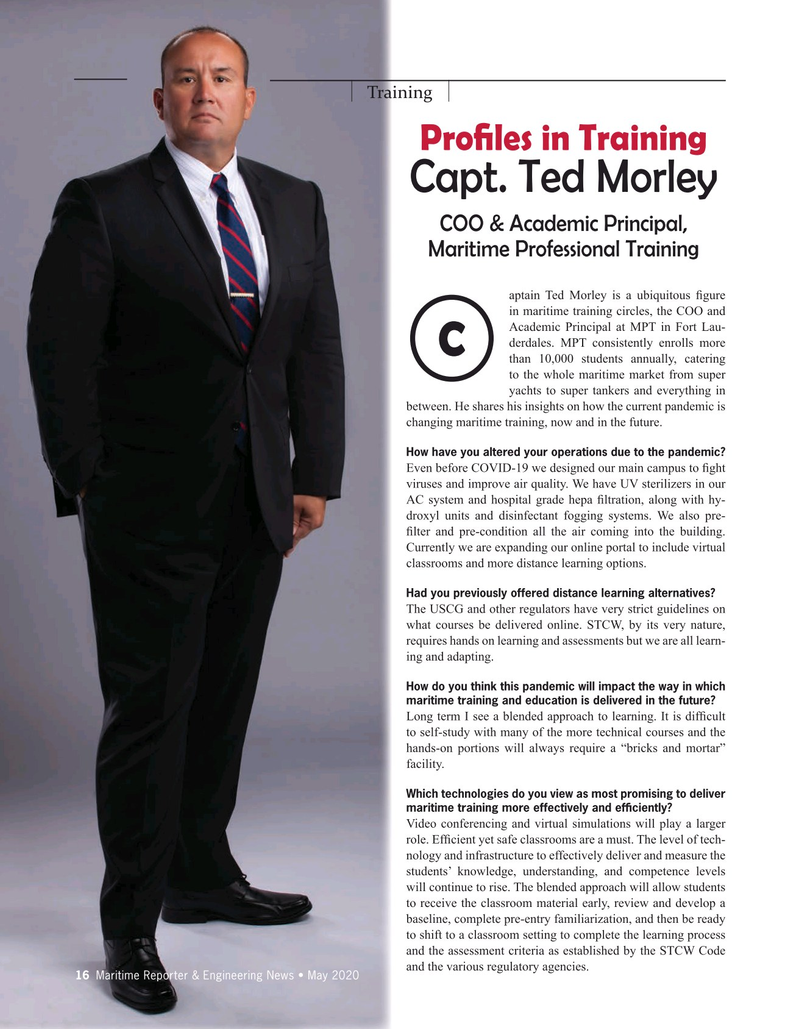
Page 16: of Maritime Reporter Magazine (May 2020)
Fleet Management
Read this page in Pdf, Flash or Html5 edition of May 2020 Maritime Reporter Magazine
Training
Profles in Training
Capt. Ted Morley
COO & Academic Principal,
Maritime Professional Training aptain Ted Morley is a ubiquitous fgure in maritime training circles, the COO and
Academic Principal at MPT in Fort Lau- derdales. MPT consistently enrolls more
C than 10,000 students annually, catering to the whole maritime market from super yachts to super tankers and everything in between. He shares his insights on how the current pandemic is changing maritime training, now and in the future.
How have you altered your operations due to the pandemic?
Even before COVID-19 we designed our main campus to fght viruses and improve air quality. We have UV sterilizers in our
AC system and hospital grade hepa fltration, along with hy- droxyl units and disinfectant fogging systems. We also pre- flter and pre-condition all the air coming into the building.
Currently we are expanding our online portal to include virtual classrooms and more distance learning options.
Had you previously offered distance learning alternatives?
The USCG and other regulators have very strict guidelines on what courses be delivered online. STCW, by its very nature, requires hands on learning and assessments but we are all learn- ing and adapting.
How do you think this pandemic will impact the way in which maritime training and education is delivered in the future?
Long term I see a blended approach to learning. It is diffcult to self-study with many of the more technical courses and the hands-on portions will always require a “bricks and mortar” facility.
Which technologies do you view as most promising to deliver maritime training more effectively and effciently?
Video conferencing and virtual simulations will play a larger role. Effcient yet safe classrooms are a must. The level of tech- nology and infrastructure to effectively deliver and measure the students’ knowledge, understanding, and competence levels will continue to rise. The blended approach will allow students to receive the classroom material early, review and develop a baseline, complete pre-entry familiarization, and then be ready to shift to a classroom setting to complete the learning process and the assessment criteria as established by the STCW Code and the various regulatory agencies. 16 Maritime Reporter & Engineering News • May 2020

 15
15

 17
17
